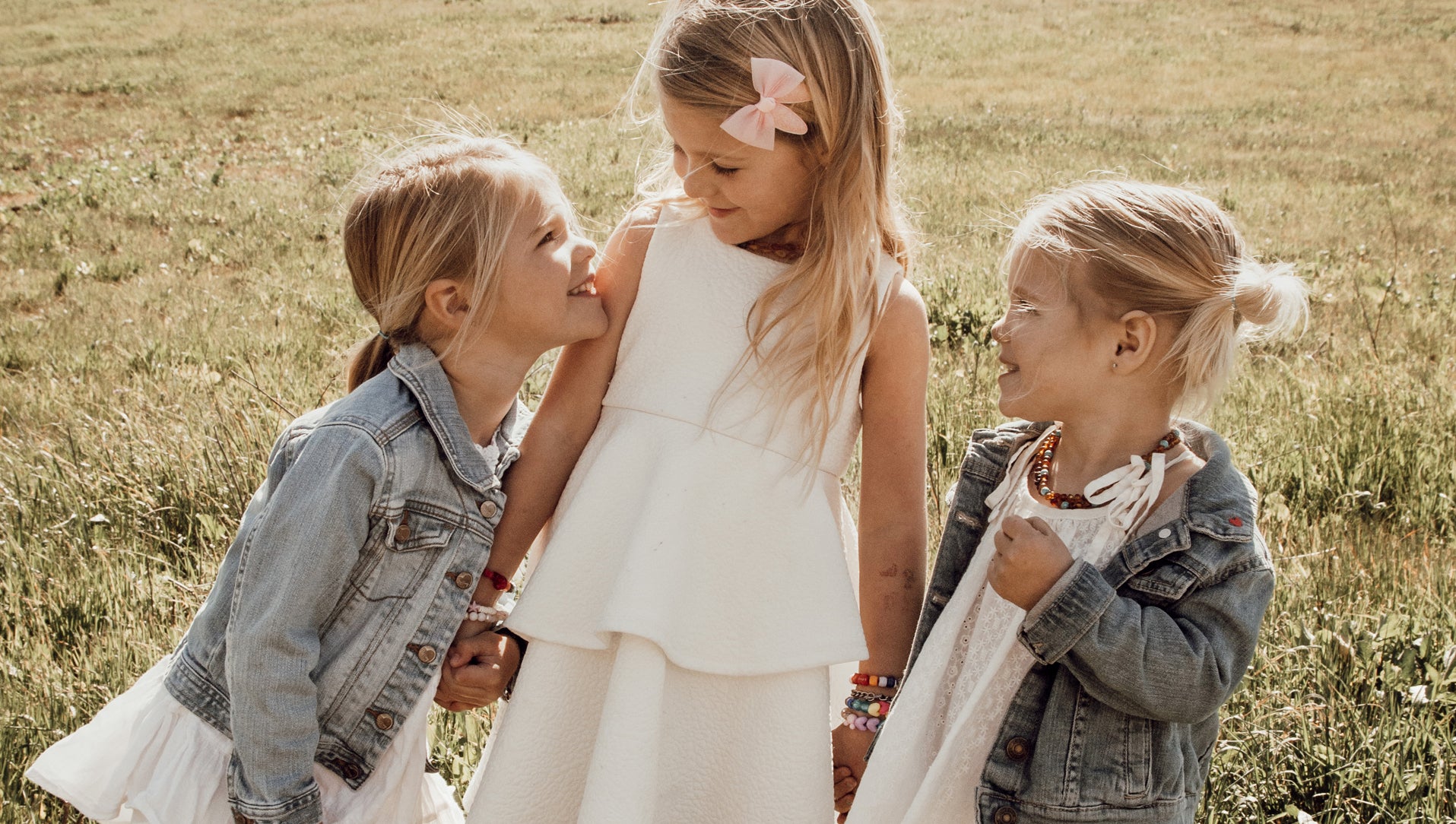6 Tips for Sibling Bonding on International Sibling Day
•Posted on April 10 2022

Happy International Sibling Day! On this day of sibling recognition, we wanted to do a post about one of the most important and enduring relationships a person can have. If you are a sibling yourself, you know what an impact these bonds can have on your life. And if you're a parent, you are keenly aware of all the trials and tribulations of sibling rivalries, but also of the love present in sibling bonds. So, as a parent, how can you encourage the latter over the former?
Sibling conflicts
First of all, keep in mind that sibling conflict is normal, and can even ultimately be beneficial (as long as the conflict doesn't become abusive.) Conflict between siblings gives children the opportunity to face aggression and resolve issues within the safety of the home, before they have to confront real-world adversity. Every sibling fight offers the chance to repair a broken bond and to practice forgiveness.
The parental role
Although sibling rivalries are common (and even normal), there are ways that parents can intervene to ensure that the fighting is kept to a minimum, that it is not abusive, and that the conflicts are resolved peaceably.
Discover the motive
Firstly, assume that there is a motive behind every sibling conflict, and that the motive is not intentionally bad. For example, if your daughter is acting out against her little sister, ask yourself why this might be the case. Is your older daughter worried that she's being replaced by her younger sister? If so, see what you can do to soothe these fears. Find a way to show her that she is important to you and that she has a very special role as the big sister.
Highlight teachable moments
Sibling conflicts in the home might drive you and your partner crazy. You might have the urge to tell them to just settle down already or to put them in time-out. But if you can ask yourself to breathe for a moment and see the opportunity shining through in each sibling conflict, you might find the answer to a more peaceful home regarding your children's interactions. Remember that sibling conflicts have the power to teach children how to:
- Use their coping skills
- Learn how to apologize
- Deal with adversity
- Overcome challenges
- Develop closeness with others
- Communicate feelings in tense situations
- Build social skills
Stepping in as a mediator (even though you might want to rip your hair out) to gently guide them into these skills will set you up for a calmer household in the future, and will help your children grow into well-adjusted adults.
Don't play favorites
Although sibling relationships can be close, a child's first attachment figures are always their parents. The kinds of messages we send our children leave an imprint, so it's important to be aware of how we're interacting with our children. If you show more affection or give more attention to one sibling over another, this could set your children up for some serious rivalries. But even more to the point, the child who receives the least attention may experience higher levels of depression, increased antisocial or delinquent behavior, or more substance use.
Don't compare your children
Along these same lines, and in the interest of sibling closeness and individual well being, it's best not to compare your children to each other. Avoid statements like: "I wish you did as well in school as your sister" or "You could be as good at sports as your brother if you just tried a little harder." This will only serve to create insecurity as well as promote hard feelings between siblings.
Instead, teach your children to appreciate each other's differences. One of your children might be very good at writing and the other might be good at math. By teaching them that they're both important and to respect each other's skills and preferences, you will have more peace in the home - plus your kids will grow up to appreciate differences in other people too!
Focus on family bonding
If your kids are fighting, remind them of the importance of family and of the special bond they have with each other. They might not always get it when they're young, but there's a good chance they'll end up appreciating it when they're older.
Make time for family fun
Nothing bonds a family (and therefore siblings) together better than family fun time. Carve out time to play games together as a family, go on hikes, learn new things, or even just have a family movie night. It's certainly harder to have conflict when you're having a good time.
Again, keep in mind that all siblings will quarrel. This is to be expected, and in many instances it is healthy. Keep an eye on the relationship to make sure the conflict isn't becoming abusive, and intervene when necessary to teach a valuable lesson, or to show your children how important they are to each other.